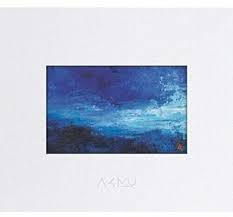7 years ago, a brother-sister act won a reality competition and were launched into stardom. Akdong Musician always feels like an act whose success, on paper, defies logic. Starting out as folk-pop, they have always retained an acoustic, organic sound in a music scene that has trended more and more electronic.
They’ve expanded their sounds and experimented with genres, but always in ways that lead them away from the mainstream. Jazz, soul, country, punk, and sea shanties have all found their way into AkMu songs to create albums that, looking at them, seem borderline schizophrenic. And yet, any confusion and doubt is guaranteed to melt away once you actually listen to their music. Raw and earnest, with deft composition and stunning vocals, AkMu are once-in-a-generation talents who’s work cannot help but leave their audience in awe.
Immensely popular from debut, it’s their first EP, Spring, that gives the first taste of what AkMu can do when they push past the boundaries of folk-pop. “Green Window” is easily their poppiest song, a self-empowerment anthem that lacks many of the sharp details typically found in their works, paired with simpler but catchy guitar riffs and synth.
Yet, their performances allow for the retention of that small, personal touch. The frantic pace and layering of vocal phrases over each other give the sense of being in someone’s mind as they psych themselves up to take on a challenge. The rhythm constantly shifts, from breakneck rapping to Suhyun’s drawn out vocal runs, leading to a roller coaster of a song, keeping the audience as off-kilter as the narrators feel.

AkMu’s second album, Winter, saw the duo continue to explore new sounds and mature themes. One prime example is “Chocolady”. A jazzy, bluesy piece straight from the 1940s, “Chocolady” is pure seduction. Suhyun’s rich voice plays against Chanhyuk’s smoother tamber for a sultry track that woos with every note. Yet what truly makes “Chocolady” stand out is the chocolady herself.
The qualities that lead to her comparison with cocoa are that she’s sweet, she’s warm, and prefers to keep things simple. Usually, a woman like this is portrayed in a romantic but desexualized light– the Madonna in the Madonna-whore complex. Here though, the same qualities that would lead many to write her off sexually are why she’s the object of desire. “Chocolady” a refutation of double standards by simply refusing to acknowledge them.
On the other end of the spectrum is “You Know Me”. A sparse, stripped down piano piece, the tune and Suhyun’s delivery sound bright and cheery, but always with a dark undercurrent, as if her chipper tone is a little forced. Which it is, because “You Know Me” is what every introvert thinks when dragged to a party. She’s uncomfortable, she’s making things awkward, and she just does not want to be there.
Still, rather than push the narrative that she’s done something wrong by not being a people person, Suhyun rightfully focuses her anger on the person who dragged her there. She’s not immature or childish, she just doesn’t like crowds, and someone who’s known her since she was young should know that. Instead, an old friend chose to write off her feelings and expect adulthood to magically cure introversion, thus earning Suhyun’s bitterness and feelings of betrayal that someone she’s known for so long either doesn’t really know or just doesn’t care.
Their third album, Sailing, opens with “Chantey”, a gorgeous acoustic guitar piece. Ostensibly drawing influence from sea shanties, the track has downright religious feeling to it. The cavernous space that leaves Suhyun’s voice echoing, the plaintive strings that come in after the choruses, the raw and unrelenting sensations of doubt and pain; it all combines into a whole that strikes the audience dumb with the sheer beauty of it, only for the world to fall askance when it suddenly cuts off.
“Should’ve Loved You More”, on the other hand, takes its cues from the last days of rockabilly, right before country and rock hit their schism. It adopts a deliberately vintage sound, from crunchy guitar solos to vocal filters designed to muffle the vocals and make the track sound older. It’s a very carefree song. AkMu might be dealing with the end of a relationship, one where they put in more work than their partner, but the uniqueness doesn’t bother them. Instead, they croon that they’ll keep loving them more, content with how things are going and just a touch of sardonic bitterness lingering right below the surface.

“Freedom” sees the duo return to their folk-pop roots. However, the refinement and experience gained since their debut allows this track to sparkle as one of their finest. The gentle guitar is played against a constantly thrumming beat that invokes the need to get up and go in the listener.
The where and why don’t matter, as “Freedom” is a track of wanderlust. Restrained vocals and subtle melodies that convey a deep, all-encompassing need to go, explore, try new things, see new places. Rather than some grand desire, though, “Freedom” makes that need feel like an itch, something that needs to be done before it drives you bonkers, a sentiment that hits much harder now than when it was released in 2019.
AkMu are a truly one-of-a-kind act. Powerhouse vocals paired with songs that rely on restraint, an ear for pop melodies and infectious hooks that always veer from the mainstream, there is no one like them except them. And as one might expect from such a talented duo, their b-sides are just as good.
(YouTube. Images via YG Entertainment.)


